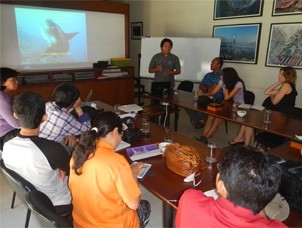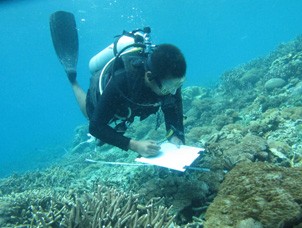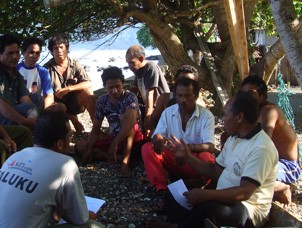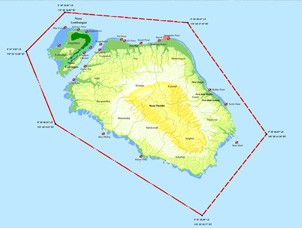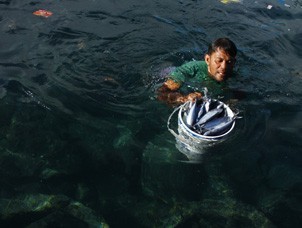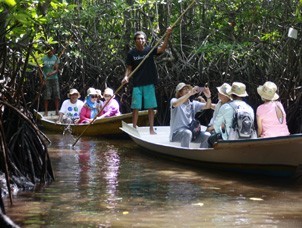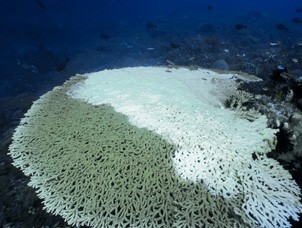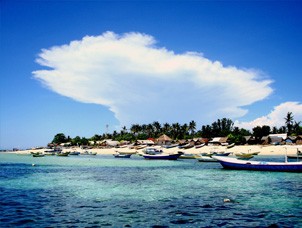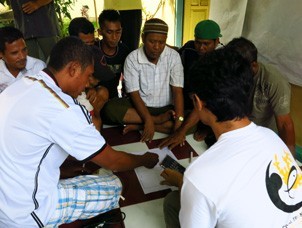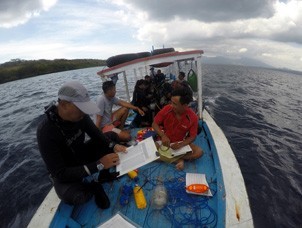Understanding the Biophysical Science behind Coastal & Marine Conservation
Understanding the Biophysical Science behind Coastal & Marine Conservation
The biophysical sciences can help marine managers understand the status and trends of the marine and coastal resources they are making efforts to conserve. In order to effectively and sustainably manage any coastal area for biodiversity and food security, it is critical to understand, measure, and monitor its biophysical elements.
Biophysical science tools and methodologies that measure baseline ecological status and trends over time provide an MPA or coastal management team with crucial information to guide decision-making. Many of the decisions made as part of MPA management benefit from these tools, from understanding what areas need to be fully protected to secure spawning aggregations of fish for future productivity to understanding oceanic conditions that can mitigate the impacts of climate change on an area. The role of the biophysical scientist or science team is essential: scientific results help practitioners develop and follow the type of management systems needed for an area. They also help practitioners assess whether management efforts are ultimately being successful, or need to be adapted.
These courses provide a foundation for understanding the tools and mechanisms required for biophysical assessments, monitoring, and measures of impacts at a site. They are relevant for science practitioners and managers across the Coral Triangle, and are complemented by social science and associated courses. Ultimately, all these courses are needed for effective and sustainable coastal and marine management.
COURSES AVAILABLE
This training intends to equip participants with the preliminary scuba-diving skills necessary for supporting water-based monitoring survey techniques. They convey essential insights on the species and habitats of the underwater world, on the role of Marine Protected Area (MPA) management, and on the design of MPAs. Participants learn basics of population dynamics of exploited species and how these dynamic relate to resource use. The training uses examples from all over the world, with a strong focus on the Indonesian situation.
Objectives
-
To provide participants with diving skills (equivalent to Open Water – certified) and environmentally friendly diving practices.
-
To provide participants with diving skills (equivalent to Open Water – certified) and environmentally friendly diving practices.
-
To teach basic knowledge and skills on marine biological survey/ observation techniques (seagrass, mangrove, cetacean, turtle, fish, and invertebrate habitat and population).
Intended Audience
Technical science staff, particularly from: government agencies, NGOs, local communities, universities, marine research centers, and related stakeholders.
Minimum Requirement
-
High school degree or equivalent.
-
High school degree or equivalent.
-
Healthy with a doctors letter/ recommendation.
-
Swimming skills (able to swim at least 200 meters on the water and 5 meters underwater).
-
No claustrophobia.
-
No other sickness that may prohibit the participant from diving activities (more information available upon request).
Language
This training can be given in Bahasa Indonesia and/or English.
Duration
Five full days, but can be extended to six days with additional field activities.
Reef health monitoring (RHM) is a biological monitoring tool to help inform MPA managers and decision-makers about the status of, and any trends of change, in coral reef and fish condition. RHM is critical for providing science-based input to ensure effective and adaptive MPA management. A monitoring person should have both the diving skills and the coral and fish identification skills necessary to conduct reef health monitoring. The RHM protocol taught in this course uses Point Intercept Transect (PIT) technique for surveying coral, and Underwater Visual Census technique (UVC) and timed swimming for surveying fish.
Objectives
-
To enhance participants’ skills in coral reef and fish identification.
-
To enhance participants’ skills in coral reef and fish identification.
-
To enable participants to implement monitoring activities to survey coral reefs and associated fish species.
-
To strengthen participants skill on data management, analysis, and interpretation.
Intended Audience
This training is tailored to suit technical science staff, particularly from:
-
Government agencies
-
Government agencies
-
NGOs
-
Local communities
-
Universities
-
Marine research centers
-
Related stakeholders
Minimum Requirement
-
Prior completion of MPA 101 training course
-
Prior completion of MPA 101 training course
-
Diving skills to at least advanced level and/ or with at least 25 dives logged
-
High school degree or equivalent
-
Healthy with doctor letter/ recommendation
Language
This training is provided in Bahasa Indonesia.
Duration
Four full days
The monitoring of Spawning Aggregation Sites (SPAGs) is the process of monitoring suspected and confirmed sites where fish spawn. Spawning usually occurs during full-moon or new moon. Monitoring focuses on populations of broodstock in SPAGs. Data collected from SPAGs monitoring helps to effectively inform MPA managers and decision makers about best practice processes required to protect certain areas that are identified as important for SPAGs.
Objectives
-
To give participants an understanding of the definition of Spawning Aggregations (SPAGs) and an understanding of their impacts on the function of an MPA.
-
To give participants an understanding of the definition of Spawning Aggregations (SPAGs) and an understanding of their impacts on the function of an MPA.
-
To give participants the skills needed to effectively identify and monitor SPAGs.
-
To give participants the skills needed to manage the data gathered, and undertake appropriate analysis and interpretation.
Intended Audience
This training is tailored to suit technical science staff, particularly from:
-
Government agencies
-
Government agencies
-
NGOs
-
Local communities
-
Universities
-
Marine research centers
-
Related stakeholders
Minimum Requirement
-
Prior completion of MPA 101 training course
-
Prior completion of MPA 101 training course
-
Diving skills to at least advanced level and/ or with at least 25 dives logged
-
High school degree or equivalent
-
Healthy with a doctors letter/ recommendation
Language
This training can be given in Bahasa Indonesia and/ or English.
Duration
Four full days, but can be extended with additional field activities.
This training program aims to prepare participants for in-field surveying and monitoring of a range of biomes and species. The training is compartmentalized into different focus areas, and these areas may be taken independently for focused learning or holistically as an overall course. The training uses examples from all over the world, with a strong focus on the Indonesian situation.
Objectives
-
To provide participants with the knowledge and skills needed for Marine Biological Surveying and observation monitoring techniques (that can be used to monitor seagrass areas, mangroves, cetaceans, turtles, invertebrates, associated habitats, and population dynamics).
-
To provide participants with the knowledge and skills needed for Marine Biological Surveying and observation monitoring techniques (that can be used to monitor seagrass areas, mangroves, cetaceans, turtles, invertebrates, associated habitats, and population dynamics).
-
To provide participants with the understanding of how to compile and interpret data for supporting both MPA design and management.
Intended Audience
This training is tailored to suit technical science staff, particularly from:
-
MPA management officials and practitioners
-
MPA management officials and practitioners
-
Coastal community members
-
Marine tourism operators
-
Universities
Minimum Requirement
-
Prior completion of MPA 101 training course
-
Prior completion of MPA 101 training course
-
Diving skills to at least advanced level and/ or with at least 25 dives logged
-
High school degree or equivalent
-
Healthy with a doctors letter/ recommendation
Language
This training can be given in Bahasa Indonesia and/ or English.
Duration
Five full days, but can be shorter and tailored to particular biomes or species of interest.
Other Courses



